Bachelor of Science in Nursing (RN to BSN)
*With a valid RN license, 40 transfer credits will be awarded. Total program requires 122 credit hours minus transfer credits. 30 credit hours must be taken at Maryville.
Dependent on credits transferred, completion time & cost may be considerably less. You have the ability to complete the program at your pace and finish in as quickly as 1 year. Please see Tuition & Financial Aid for complete details. Contact an enrollment advisor to learn more.
Overview
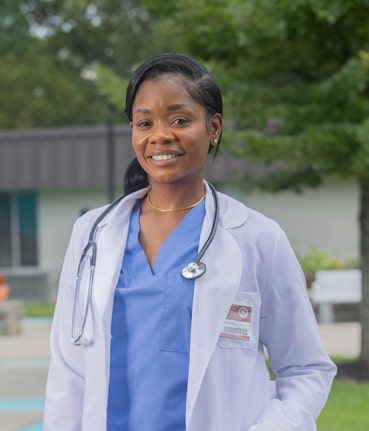
Bachelor of Science in Nursing (RN to BSN)
More healthcare employers than ever now require their nurses to hold a Bachelor of Science in Nursing (BSN). If you plan to become a leader in your organization or work in specialized areas such as acute care or mental health, now is the time to earn your BSN.
The RN to BSN degree program from Maryville University can prepare RNs like you to pursue positions that nurses with an associate degree typically can’t, including leadership roles.
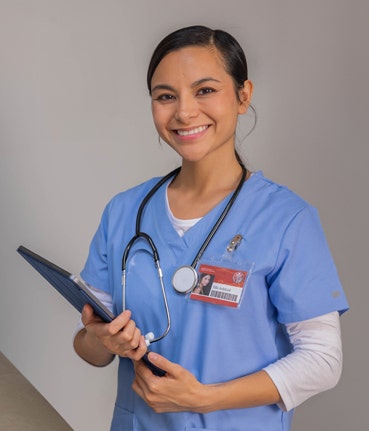
Why earn your RN to BSN degree with Maryville?
- Accredited. Earn a degree accredited by the Commission on Collegiate Nursing Education (CCNE).
- Accessible. The RN to BSN degree is designed for registered nurses with diplomas or associate degrees.
- No entrance exams required. ACT/SAT scores are not needed to apply.
- 100% online coursework. Complete your RN to BSN online — no campus visits required.
- Transfer credit friendly. Graduate with your BSN in as few as three semesters, depending on credits transferred.
- Apply with no application fee.
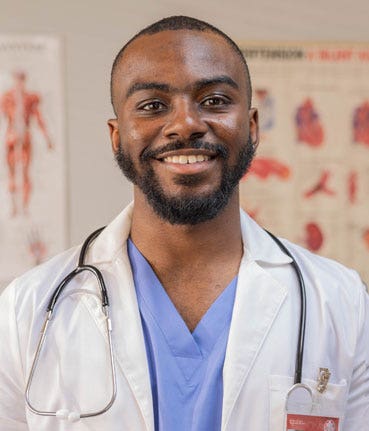
Why earn your RN to BSN degree with Maryville?
Our expert faculty and innovative curriculum will help you develop the clinical, research, and leadership skills necessary to move your career forward toward higher earning potential and greater professional fulfillment.
- Start when it’s convenient for you — fall, spring, or summer.
- Collaborate with diverse nursing students through online discussions.
- Lay the foundation for further advancement by preparing for a graduate program such as a Master of Science in Nursing.
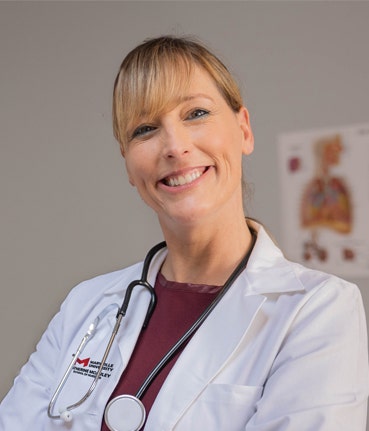
Why choose Maryville University for your RN to BSN degree online?
- Access coursework through our user-friendly learning platform.
- Enroll in relevant courses informed by healthcare employers.
- Connect with expert faculty who are passionate about mentoring and invested in you.
- Stay up and running with 24/7 technical support.
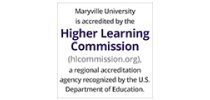
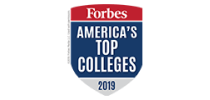
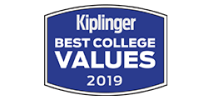
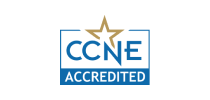
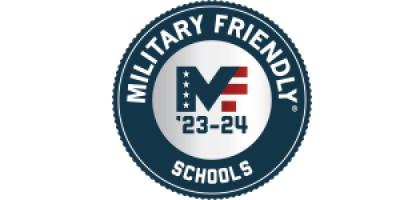
Important dates for 2026
Program details
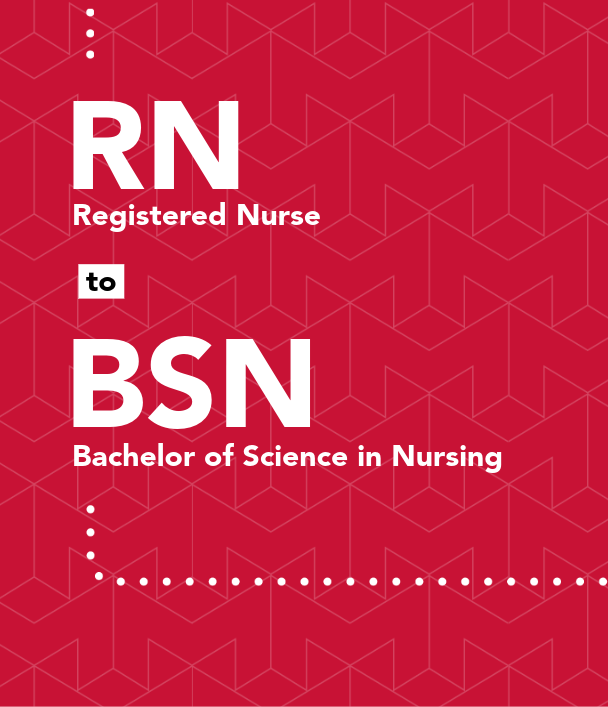
Why earn your RN to BSN degree online?
As a busy nurse, you need a program that can work with your lifestyle. Maryville University’s online RN to BSN degree offers flexible schedules and easy credit transfers to put you on track to complete your degree sooner.
Our 100% online programs use leading education technologies that are simple to navigate, supported by personalized attention, and foster meaningful connections with faculty and fellow students.

Common RN to BSN online courses
The RN to BSN curriculum typically includes the following courses:
- Nursing Informatics
- Nursing Care at End of Life
- Leadership in Contemporary
- Health Care Family Assessment

Skills, concepts, and opportunities an RN to BSN can provide
A typical RN to BSN curriculum focuses on the following skill sets and concepts related to nursing:
- Leadership in the workplace
- Interpersonal communication with patients and their families
- Caring for aging patient populations
- Advanced healthcare technologies
Careers

What’s the market outlook for registered nurses with a BSN?
Today’s nurses care for patients in settings reaching far beyond hospitals and take on new responsibilities as teachers, rehabilitators, and even primary care providers. Maryville’s RN to BSN online program can help prepare you to meet today’s diverse patient needs.
Read on to learn a few of the reasons why now is a great time to earn your BSN.

The demand for nurses is high
The U.S. Bureau of Labor Statistics projects the employment of registered nurses to increase by 5% between 2024 and 2034, faster than the national average for all occupations.
Drivers of this projected growth include the needs of an aging population, increased demand for nurses in long-term care facilities and outpatient care centers, and the need to educate and care for patients with chronic conditions such as arthritis, dementia, diabetes, and obesity.

More employers require BSNs

Nurses help alleviate the shortage of primary care providers
“As clinicians that blend clinical expertise in diagnosing and treating health conditions with an added emphasis on disease prevention and health management, NPs bring a comprehensive perspective and personal touch to healthcare.”

What can you do once you complete your online RN to BSN

Careers with a BSN
With your accredited online RN to BSN degree, you can pursue nursing roles such as:
- Nursing manager
- Nurse educator
- Nursing informatics specialist
- Director of nursing
- Clinical nurse manager
- Registered nurse supervisor

What is the median Bachelor of Science in Nursing salary?
With your online RN to BSN degree, you may be able to qualify for leadership roles and earn salaries such as the following*:
- Nursing manager: $87,000
- Nurse educator: $77,000
- Director of nursing: $92,000
- Clinical nurse manager: $84,000
- Registered nurse supervisor: $75,000
- Nursing informatics specialist: $84,000
*Median salaries are based on data compiled by the online career resource PayScale.

BSN-qualified nurses work in a variety of healthcare settings
- Hospitals
- Nursing homes
- Schools and universities
- Research labs
- Community services
- Federal agencies
- Home healthcare settings
- Private practices
- Telehealth applications

Where can your nursing career go from here?
If you hold an RN license, completing your undergraduate degree in nursing is a great way to increase your competitiveness for top nursing jobs. As you continue to gain experience and consider additional education, we can connect you to high-quality programs offering multiple specializations to fit your goals.
Master of Science in Nursing, with five concentration options.
Bachelor of Science in Nursing to Doctor of Nursing Practice, with five concentration options.
Earn an education with a strong ROI
We’re proud to be recognized among the leaders in social mobility in our region*:
- No. 1 in social mobility among private colleges and universities in the St. Louis area
- No. 1 in lowest average debt among regional private peers
- Top 3 in St. Louis for graduation rates and early-career earnings
These rankings serve as indicators of strong ROI for our graduates — meaning your Maryville education can help you start faster and go further.
Testimonial
— Joe Balassi, online RN to BSN student
Support and resources to succeed on your terms
Taking the next step in your nursing education is a big commitment, but we’re here to help you work around your busy RN schedule with flexibility and dedicated, one-on-one support.
Hear about it from 2025 online BSN grad Ashley Peek, a single mother with a packed schedule who utilized all the support and resources we offer to take the next big step in her career.
Curriculum
RN to BSN online curriculum
Maryville’s RN to BSN online degree curriculum offers a wide range of courses designed to help RNs advance to leadership roles. The program requires a valid RN license to be awarded 40 transfer credit hours. The program requires a total of 122 credit hours to graduate, 30 of which must be taken at Maryville. Nurses with associate degrees can apply approved transfer credits to satisfy some or all general education courses.
Our continually updated courses connect you with expert faculty members to collaborate on research and allow you to demonstrate your knowledge through the completion of a public health capstone project. Graduates can emerge with advanced skills to assess patient health, present research, and direct nursing teams with confidence.
Please note: To ensure you have enough time to complete your work around your current RN obligations, we typically recommend you pursue your BSN on a part-time basis. Please speak with your advisor for more details.
General education courses (64 credits)
Nursing courses (25 credits)
The quality of life in any society depends on the health of its citizens and the promotion of that health by individuals, communities and governing bodies. Essential to achieving health and wellness is understanding the determinants of health and the strategies that can be applied to foster healthy lifestyles. This course includes concepts and strategies of nutrition, exercise and lifestyle choices.
Prerequisite: ENGL 101
An understanding of physiology of altered health across the life span provides a basis for nursing interventions. This course examines alterations in body function and system failure associated with common health problems.
Prerequisite: BIOL 102, BIOL 104, ENGL 104 and CHEM 120 (or equivalent).
While professional nursing is a complex service that has evolved over time, a consistent theme of nursing practice within a variety of cultural and technological contexts has been ensuring the well-being of patients. This course has a twofold focus: 1) a beginning exploration of the roots and development of the profession, and 2) provision of comfort and safety and assistance to the client in activities of daily living.
Prerequisite: BIOL 102, BIOL 104, ENGL 104, and CHEM 120 (or equivalent)
Corequisite: NURS 202, NURS 203C, and NURS 204L
Introduces common classifications of therapeutic drugs including major actions, indications, side effects, dosage range, nursing implications and examples. Application activities focus on administration of therapeutic drugs.
Prerequisite: BIOL 102, BIOL 104, ENGL 104, and any Chemistry course.
Nursing requires knowledge of psychosocial concepts in order to provide holistic nursing care for individuals and families in every practice setting. This course examines promotion of mental health, the management of mental illness and relevant social policy. Students provide care for clients demonstrating a variety of behaviors in acute and community settings.
Corequisite: NURS-302C, NURS-303 (or prior)
The physiologic, psychosocial, and learning needs of the adult are the focus of this course. Nursing care includes the prevention of illness, nursing care during illness, and the rehabilitation of the adult client. Students develop an understanding of the ethical and legal issues that impact nursing care of the adult.
Prerequisite:NURS-201, NURS-202, NURS-203, NURS-205, NURS-206L
Corequisite: NURS-303C and NURS-310L previous or concurrent
This course focuses on applying the nursing process in the care of the child- bearing family. Contemporary issues in maternity, womens health and preventive health issues are explored. Both theory and clinical experiences address the physiological and psychosocial needs of the child-bearing family.
Corequisite: NURS-303 (or prior), NURS-310L (or prior)
Nursing care of the child and adolescent requires applying the nursing process based on the developmental needs of the child and family. Students explore health promotion, growth and development, and the impact of acute and chronic illness in childhood and adolescence. Theory and clinical experiences address the physiological and psychosocial needs of the pediatric patients.
Corequisite: NURS-304 (co or prior)
NURS 301L Adult Nursing Skills Lab (1 Credit)
This course integrates medical surgical case studies with medical surgical psychomotor skills in order to care for complex clients and safely administer medications.
Corequisite: NURS-202 (or prior) and NURS-206L (or prior)
This course continues the focus on needs of adults experiencing illness in acute and community-based settings. The theoretical basis of medical/surgical nursing care for adults is emphasized along with the application of the nursing process for common and complex health problems. Cultural differences, ethical considerations, and legal responsibilities are integrated throughout the course as students deliver professional nursing care.
Prerequisite: NURS-303
Corequisite: NURS-304C
To ensure the best possible educational experience for our students, we may update our curriculum to reflect emerging and changing employer and industry trends.
Professional licensure and certification regulations vary from jurisdiction to jurisdiction. Students are encouraged to visit the National Council of State Boards of Nursing for the state in which they intend to practice to verify specific licensure requirements which includes ensuring the program of interest meets the licensure requirements prior to enrolling. Students may visit the professional licensure page or reach out to our team of enrollment advisors for guidance.
Admission requirements
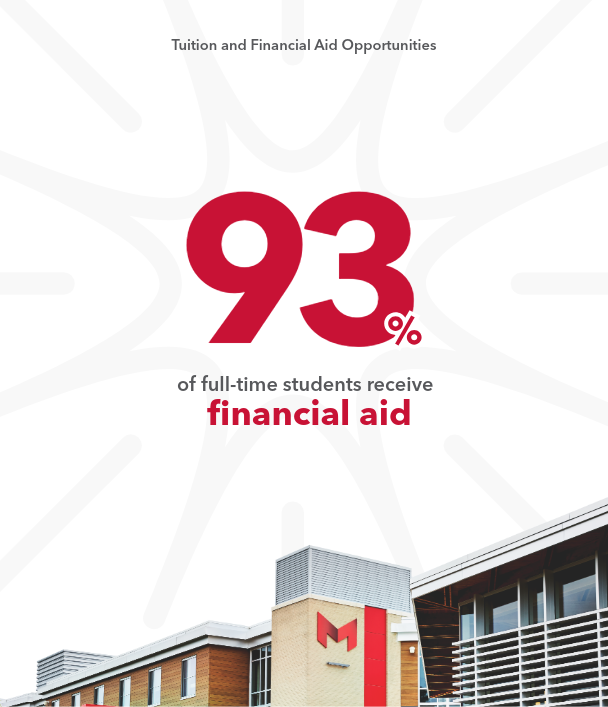
- Current, unencumbered licensure as an RN in the U.S.
- Associate degree in nursing or nursing diploma
- Minimum GPA of 2.5 on a 4.0 scale (high school) / 2.5 on a 4.0 scale (college)*
- Official transcripts from every post-secondary school attended
- We offer a transcript service to request transcripts on behalf of the applicant. Transcript release form sent to the applicant after they submit their online application.
- No standardized test required

Transfer credit policy
- Students applying to the RN to BSN program receive 40 transfer credits (at no cost to the student) for validation of their RN license. See the curriculum section for details.
- Only credits from regionally accredited institutions will be considered for transfer.
- A maximum of 68 credits from a two-year college or 98 credits from a four-year college will be considered and evaluated for transfer.
- The student must take a minimum of 30 credit hours through Maryville University in order to complete a degree program.
- The acceptance of transfer credit is at the discretion of Maryville University.
Interested in this degree?
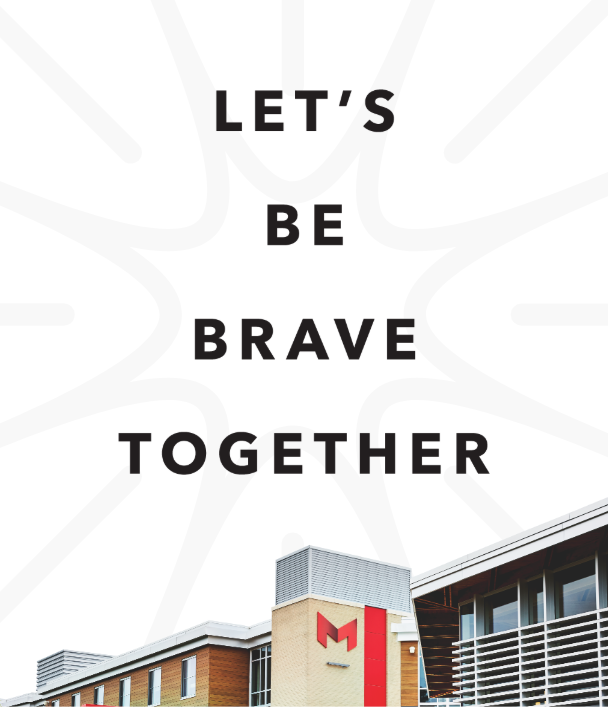
University details
Founded in 1872 — top-rated today
Maryville University is proud to be recognized as one of America’s best colleges by U.S. News & World Report and Forbes.
At Maryville, we invite future nursing leaders to be brave and expand their potential. Let’s be brave together.
RN to BSN online degree: Meet our faculty
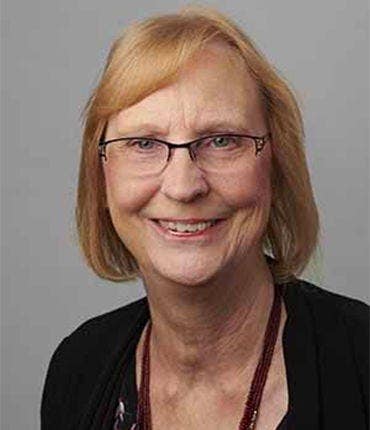
Meet Dr. Boniface Stegman
Dr. Boniface Stegman is an experienced clinical leader with decades of expertise in emergency nursing as a staff RN, in addition to pre-hospital and hospital staff education and direction.
Dr. Stegman began her professional career as a paramedic in North St. Louis County in the late 1970s. This led to her pursuing a nursing career in 1982. From the early 1980s though the mid-2000s, Dr. Stegman held notable nursing education and director positions.

Meet Dr. Boniface Stegman
She joined Maryville University as a nursing faculty member in 2010. She currently teaches online nursing leadership, nursing informatics, nursing research, and more. She also fulfills the roles and responsibilities of community paramedic, community assessment, and chronic disease management.
In addition to her extensive professional experience, Dr. Stegman regularly presents her nursing education insights in breakout workshops, sessions, and conferences. She has also held longtime executive leadership committee memberships.
Frequently asked questions
The Commission on Collegiate Nursing Education (CCNE) is an independent accrediting agency created to assess and identify programs that engage in effective practices to teach nursing skills and concepts. CCNE exclusively accredits baccalaureate, graduate, and residency programs.
If you’re looking to get your BSN or higher, make sure you choose a program with CCNE accreditation. Doing so can help you stay competitive.
The online RN to BSN program at Maryville University requires students to hold a valid RN license to be awarded 40 transfer credit hours toward the degree. Students must complete 30 of the remaining 89 credit hours at Maryville. In addition, they must earn at least half of the required major/minor credit hours at Maryville.
Transfer credits are accepted only from regionally accredited colleges or universities. Generally, if you have earned credits with a grade of C- or better at a regionally accredited institution, they will be accepted as transfer credit.
For more information about transferring credits, including military credits, see our Transfer Student Admission page.
Careers and resources


